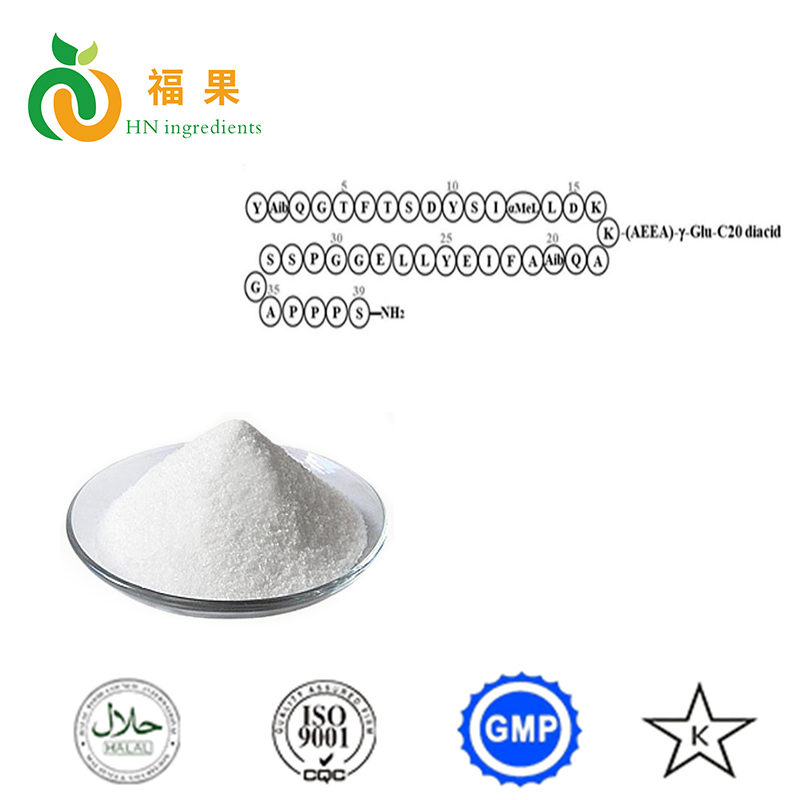
Retatrutide (LY3437943), developed by Eli Lilly, represents a groundbreaking advancement in metabolic disease therapeutics as the first and only GLP-1R/GIPR/GCGR triple agonist currently in clinical development. This innovative molecule simultaneously targets three key incretin pathways, creating a synergistic effect that delivers superior outcomes in weight management and metabolic regulation.
Phase II clinical trials demonstrated unprecedented efficacy, with participants achieving average weight reduction of 24.2% over 48 weeks at the highest dose (12mg) - the most significant results observed with any pharmacological agent to date. Building on these robust findings, Eli Lilly has advanced Retatrutide into multiple Phase III clinical studies exploring indications including obesity, type 2 diabetes, cardiovascular event prevention, and obstructive sleep apnea. Notably, in 2025, the company registered the first Phase III trial (TRIUMPH-7) investigating a triple agonist for chronic low back pain, highlighting its potential therapeutic expansion beyond metabolic disorders.
As a synthetic peptide therapeutic, Retatrutide is produced using advanced solid-phase peptide synthesis technology. Recent patent applications have revealed continuous improvements in synthesis methodologies to enhance purity and yield.
Optimized manufacturing approaches employing Fmoc/tBu solid-phase synthesis combined with fragment condensation strategies successfully minimize byproduct formation, resulting in final product purity exceeding 99% with individual impurities below 0.10%. The utilization of Sieber resin as a solid-phase carrier with specifically designed octapeptide protected fragments for key sequence coupling has significantly improved synthesis efficiency.
Further refinement by Suzhou Mediff Biotech demonstrated that stepwise peptide fragment synthesis and combination strategies can enhance both purity and yield of Retatrutide, establishing a solid foundation for industrial-scale production.
Retatrutide's triple-agonist mechanism provides its exceptional therapeutic profile. Unlike single-target agents, it simultaneously activates GLP-1, GIP, and GCG receptors. GLP-1 receptor activation primarily reduces appetite and delays gastric emptying; GIP receptor agonism enhances insulin sensitivity and optimizes energy metabolism; while GCG receptor activation increases energy expenditure - creating a powerful synergistic effect for weight loss and glucose control.
Clinical research has also revealed significant benefits in metabolic dysfunction-associated steatotic liver disease. In obese patients with liver fat content ≥10%, 24-week treatment with Retatrutide resulted in dramatic reductions of hepatic fat content ranging from 57.0% to 82.4% across different doses, alongside notable improvements in liver fibrosis biomarkers.
Additionally, the medication significantly improves other cardiovascular risk factors including blood pressure and lipid profiles, demonstrating multiple metabolic benefits. In clinical practice, Retatrutide is administered as a once-weekly subcutaneous injection, supporting patient adherence to long-term therapy.
Although Retatrutide has not yet received regulatory approval for commercial distribution, financial markets have responded enthusiastically to its development. Eli Lilly's stock value surged dramatically in 2023, partially driven by excitement around its obesity pipeline including Retatrutide, temporarily making it the most valuable pharmaceutical company in the United States by market capitalization.
Industry analysts project that Retatrutide, along with Lilly's oral GLP-1 agent Orforglipron, could potentially launch around 2026/2027. While direct sales contribution from Retatrutide is initially estimated at only 2%-5% by 2030, this valuation may be revised upward as development progresses.
The obesity therapeutics market that Retatrutide will enter represents a potentially $100 billion opportunity, with additional disruption expected to the $76 billion traditional weight loss industry (including commercial diet programs and exercise regimens). With global obesity prevalence continuing to rise, Retatrutide's superior efficacy profile positions it for strong market penetration upon approval.
With the continuing increase in global obesity and related metabolic disorders, Retatrutide is positioned for rapid growth, supported by its exceptional efficacy and multi-system metabolic benefits. Researchers are actively exploring its potential in new indications including non-alcoholic steatohepatitis and Alzheimer's disease, which could substantially expand its therapeutic applications and market potential.
Long-term, Retatrutide's significance extends beyond providing another treatment option - it establishes a new paradigm for multi-targeted metabolic disease therapy. As additional clinical data accumulates and real-world experience grows, this innovative triple-agent approach is poised to benefit patients worldwide, representing a transformative advancement in metabolic disease management.